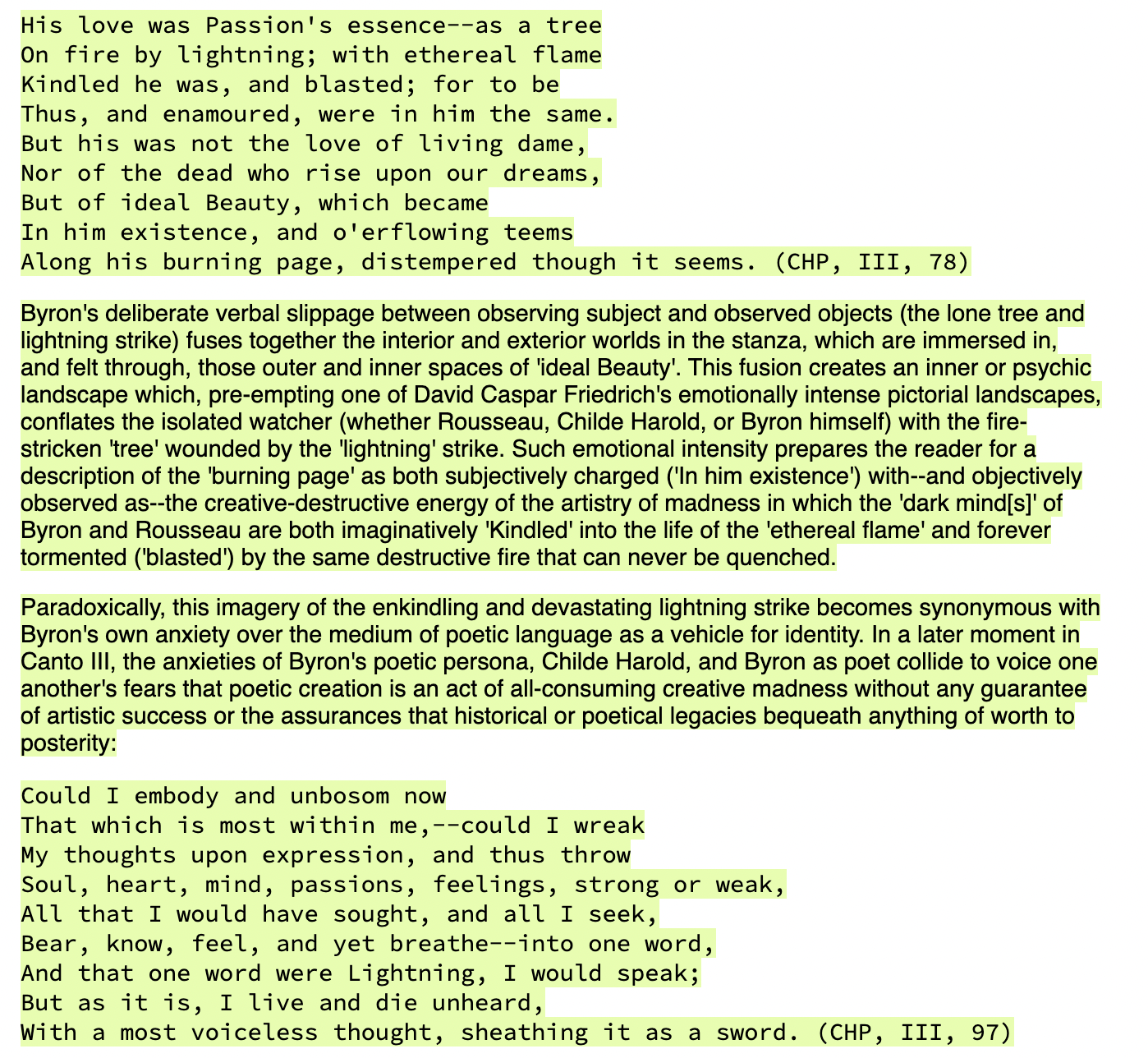Sublime
An inspiration engine for ideas
Byron Shelley was a poet.
According to Goethe, Byron’s poetical power eclipsed all other mortals, and he was not held back by petty morality, being possessed of a virtue of which the bourgeoisie had no conception.
Alan Cardew • Lord Byron: The Perils and Glories of a Classical Education

Byron never traveled without his menagerie of “eight enormous dogs, three monkeys, five cats, an eagle, a crow, and a falcon.” Other times he traveled with peacocks, an Egyptian crane,
Charlotte Gordon • Romantic Outlaws




As to the poetical Character itself (I mean that sort of which, if I am any thing, I am a Member; that sort distinguished from the wordsworthian or egotistical sublime; which is a thing per se and stands alone) it is not itself - it has no self - it is every thing and nothing - It has no character - it enjoys light and shade; it lives in gusto, be
... See more